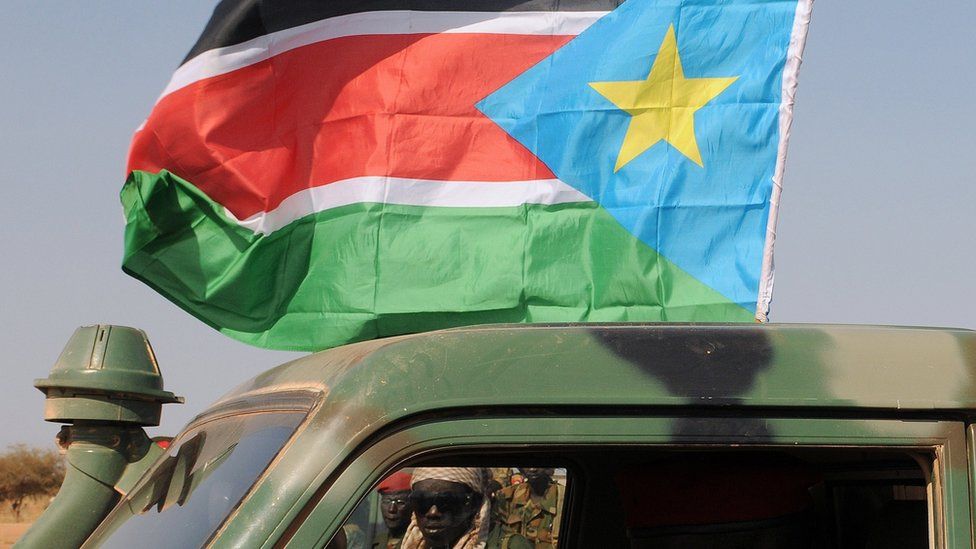South Sudan sanctions 'blocked by Russia and Angola'
- Published

Russia and Angola have opposed moves at the UN Security Council to impose sanctions on a South Sudan general and a rebel commander, diplomats say.
The US had proposed a travel ban and asset freeze on army chief Paul Malong and rebel general Johnson Olony for continuing to fuel conflict.
The Russian ambassador to the UN said sanctions might aggravate the situation, AP news agency reports.
Fighting has continued in South Sudan despite last month's peace deal.
Both sides signed the agreement to end the 20 months of conflict under intense regional and international pressure.
The fighting between forces loyal to President Salva Kiir and his former deputy Riek Machar has forced more than 2.2 million people from their homes in the world's youngest state, which broke away from Sudan in 2011.
At least seven ceasefires have been agreed and then shattered - and US diplomats want to maintain the pressure to ensure the most recent deal succeeds.
Russia's UN ambassador Vitaly Churkin said he felt sanctions were not the solution after his country's talks with the foreign ministers of South Sudan and Sudan.
"The United States, very often they just say: 'Sanctions, sanctions, sanctions', and in some cases it severely aggravates the situation," AP quotes him as saying.
According to the Reuters news agency, Venezuela also requested that the sanctions proposal be put on hold.
A hold does not mean the proposal is dead, but it delays its consideration, the agency reports.
Angola wanted to give the parties more time to implement the peace deal, it said.
Fighting broke out in South Sudan in December 2013 after President Kiir accused former Vice-President Machar of plotting a coup.
Mr Machar denied the charges, but then mobilised a rebel force to fight the government.
On Tuesday, President Kiir reiterated his reservations about the deal in a televised national address as both sides accuse the other of breaching the ceasefire.
He again listed points such as the demilitarisation of the capital, Juba, and the appointment of a foreigner to monitor the agreement as "a violation of sovereignty".
However, he did express his commitment to the agreement.